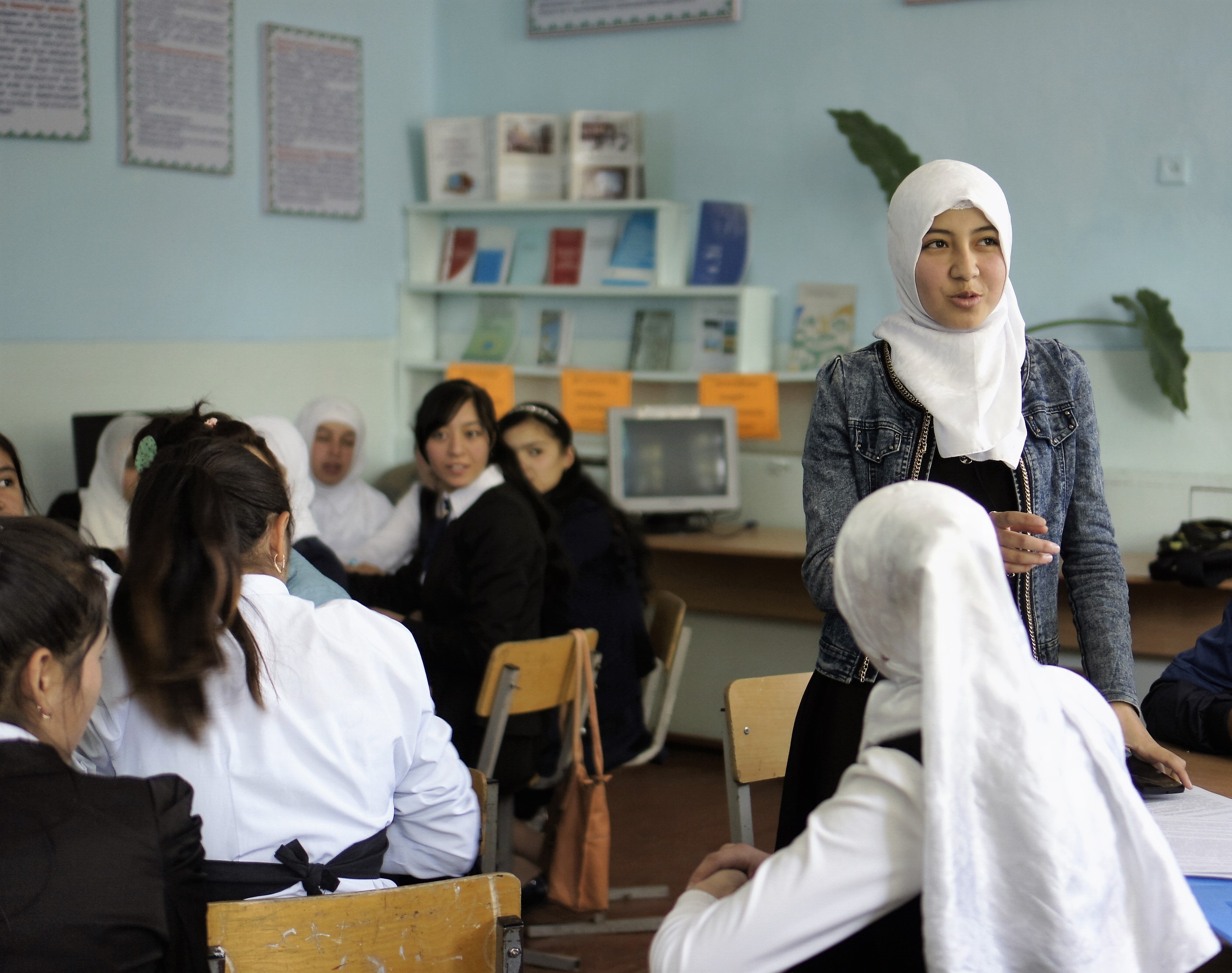Kyrgyzstan is considered the most progressive and democratic out of the five post-Soviet Central Asian republics. However, in regards to the realization of women’s rights and human security, the Kyrgyz republic struggles. Since independence three violent conflicts have occurred, the latest in the Osh region of Southern Kyrgyzstan in 2010. These outbreaks of violence have given strength to two trends of nationalism and retraditionalization, which continues to severely limit women’s freedom and control over their own lives. For example, according to the latest National Review of the Kyrgyz Republic in the framework of the Beijing Declaration and Platform for Action from 2015, 60 % of marriages in the countryside happens through bride kidnapping (ala kachuu). It also reports an increase in domestic abuse of women interrelated with the violence of the 2010 events. In 2012 every fourth woman aged 15-49 had been physically abused in her home and this number is steadily growing. In the same year, only two out five women sought help for their injuries caused by this violence.
In 2000, the United Nations adopted perhaps the most famous resolution of all time – UNSCR 1325 – which legally binds all member states, including Kyrgyzstan, to implement its content. UNSCR 1325 is
the foundation of the UN’s Women Peace and Security Agenda, and it acknowledges not only the specific vulnerability of women and girls 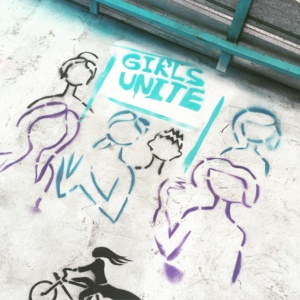 in peace and conflict, but it also highlights the importance of including women at all decision-making
in peace and conflict, but it also highlights the importance of including women at all decision-making
levels in society. In order to facilitate the implementation of UNSCR 1325, all member states were urged to create national action plans (NAP) which should outline achievable goals and measures. As of September 2016, only 63 UN member states have made a NAP and Kyrgyzstan is one of the 63! The Kyrgyz NAP has five main goals, and all of them address in different ways problems relating to security and women’s rights. For instance, the NAP calls for increased support to women and girls who have become victims of violence, reviews of the existing legal framework to make it complaint with the WPS-Agenda, and improved cooperation between state authorities, local governmental bodies and civil society. The existing NAP was supposed to be carried out in the years of 2013 and 2014, but because of lack of will, capacity and allocation of resources these developments have come into a halt.
Taking into consideration massive violations of women’s rights especially 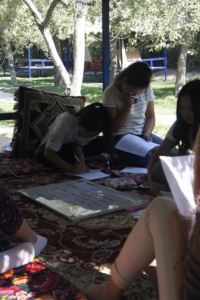 during conflict, the Public Union Novi Ritm (Новый Ритм which translates
during conflict, the Public Union Novi Ritm (Новый Ритм which translates
into New Rhythm) in coorperation with the Central Asian Solidarity Groups (CAG), are working on a project to address these problems from a grass root level – Project 1325. Novi Ritm is an Osh-based organization by youth for youth which officially was established in 2014. Our regular activities include different clubs, such as Self-Development Group for Girls and Young Debater’s Club, and our wish is to create social spaces for young people to discuss and explore social issues in Kyrgyzstan. This year, 2016, we are additionally carrying out the Project 1325 which expands our activities further.
The project has three main objectives; 1. Organizational and thematic capacity-building within Novi Ritm, 2. Awareness-raising and knowledge building activities in the three regions of Osh, Batken and Jalal-Abad, and 3. Facilitating peace initiatives and a regional network working together with issues relating to UNSCR 1325. At this point in time, we are underway with objective 2, and thus conducting a series of trainings in different formats. In Osh oblast, we have so far discussed UNSCR 1325, human and women’s rights and conflict prevention with 115 people aged 16-28 with Kyrgyz, Uzbek and other origins. In Jalal-Abad City, Suzak and Symkat we have held 5 trainings reaching 79 participants of the same age as in Osh. In Batken, the region furthest away from our base out of the three that we are targeting, we have so far only had one training with 13 participants. But, slowly and steadily, we are working towards our goal of reaching 120 adolescents in each region.
During our trainings, we have so far shared our knowledge and asked for information in return. Through discussions, interviews and surveys with 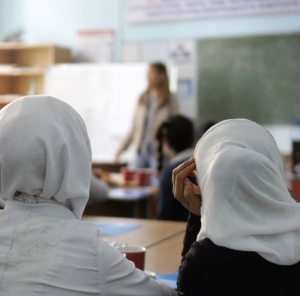 participants and observers, we have managed to collect valuable feedback and ideas which can help us improve our work and adapt methods and material depending on the utmost local issues young people are experiencing depending on their location. From this so far, we experience that young women and men are very interested in increasing their knowledge and capacity in addressing social issues in their community. The participants have generally thought that exercises and other practical information has been most useful, and the leader of Suzak Youth Center expressed the following heartwarming statement:
participants and observers, we have managed to collect valuable feedback and ideas which can help us improve our work and adapt methods and material depending on the utmost local issues young people are experiencing depending on their location. From this so far, we experience that young women and men are very interested in increasing their knowledge and capacity in addressing social issues in their community. The participants have generally thought that exercises and other practical information has been most useful, and the leader of Suzak Youth Center expressed the following heartwarming statement:
“Thank you, it was interesting. If previously we knew about human rights, the violation of women rights from the theoretical point – now we understand how in practice we will be able to work with such problems.” [Translated from Kyrgyz]
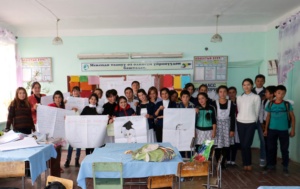
The general knowledge about UNSCR 1325 and Kyrgyzstan’s responsibilities in relation to the ratification of this resolution was beforehand virtually non-existent no matter if we were visiting the villages or the cities. In addition to providing some basic knowledge on this, the youths also expressed that they got to reflect upon the conflicts surrounding them in everyday life and were inspired by methods of non-violent action. As rewarding as this feedback has been to us at Novi Ritm, there remain many problems in Southern Kyrgyzstan which need not be ignored.
Today, Kyrgyzstan has a high level of corruption, and tendencies towards extremism in relation to both nationalism and religion has been increasing especially since the events of 2010. Religious and ethnic conflicts, retraditionalization, and invasion of privacy through gossip and shaming are imposing increased control over young women and men especially in rural areas. Both genders are many times denied higher education, because it is deemed unnecessary. Instead the men are often sent to work abroad, whilst women are expected to marry at young age. Early and unregistered marriages, and the abduction of young women for forced marriage (ala kachuu) are widespread phenomena, and many times married women are controlled by the entire family-in-law. In this sense, women are victims of tradition and we need yet to reach out to them in order to facilitate the full implementation of UNSCR 1325 in Southern Kyrgyzstan.
By Isabelle Persson, reporting from Osh, Kyrgyzstan

